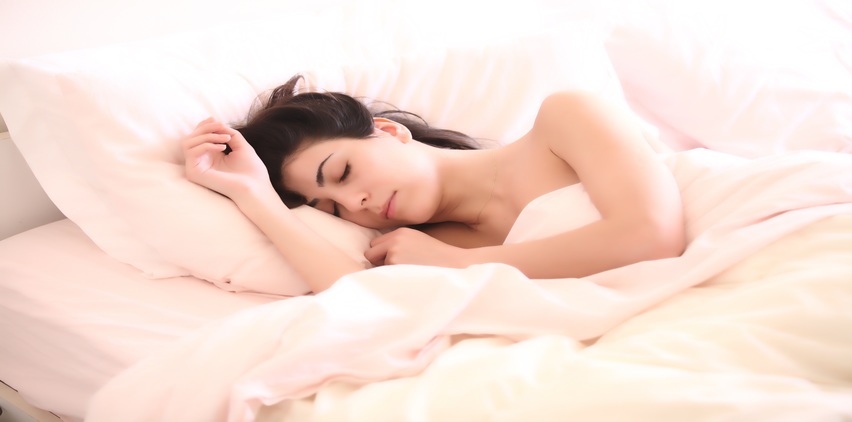

August 4, 2018 | Categories: Beauty & Skin Care
Beauty sleep is real. We got dermatologists to say exactly what’s going on with your skin while you snooze, and how you can use it to get your best complexion ever.
But they’re also doing that during the daytime, too, says our skin care experts. “Skin renewal is an ongoing process,” says Sonoa Au, M.D., of Advanced Dermatology, P.C. “It’s hard to tell exactly when it’s happening. There’s a process at night. When you’re younger, your cells regenerate every 28 days or so but as you get older there’s more time in between. It is happening at night. It may be happening during the day as well,” says Mona Gohara, M.D., Yale Medicine. (Read the Sun Protection Guide for Athletes.)
Skin sebum excretion peaks at midday, there is less sebum production at night, says Dr. Au. Overnight, you’re lose more water because you don’t have a protective layer of natural oils on your skin. You’re losing more water, called trans epidermal water loss, towards the end of the day, so overnight it’s important to replenish the water loss with moisturizers, she suggests.
“While there aren’t studies that show skin is being repaired while you sleep, at night, there’s no UV damage, no environmental stresses, pollutions, not smoking, no big changes in temperature, you’re not wearing makeup,” says Dr. Au. “All of these things play a factor in that at night your skin has more time to rest and rejuvenate. I think that’s how this notion that skin is enhanced at night. Your skin follows the body’s circadian rhythm and has a response to environmental factors during the day, like temperature changes, humidity, and UV radiation, according to studies.
“The proverbial factory is open at night and that’s when you’re likely to put on heavier hitters,” says Dr. Gohara “Put the heavy hitters on at night, like retinols and glycolic acid. There’s more of a risk of irritation during the day, particularly because the sun defeats active ingredients, like the retinol. I like those exfoliating things to happen at night,” says Dr. Gohara. She tells clients to alternate retinol and glycolic products so you’re less likely to be irritated.
“Retinols can make you more sensitive to the sun, but the sun denatures active ingredients and kind of nullifies you applying it,” says Dr. Au. Make sure you apply sunscreen in the morning. Morning is also a great time to apply vitamin C serum to help protect your skin from elements during the day.
Whether you’re apply bleaching creams (hydroquinone) used alone or with a retinoids (tretinoin) to fade dark spots or brown spots on the skin, make sure you’re doing that before you go to bed, says Dr. Au. During the day, you’re in the sun and UV light causes an increase in melanin production which results in pigment changes and darker color, counteracting what the products are designed to do. Keep them as part of your evening skin routine.
When you sleep, at night your skin is slightly hotter and slightly more acidic, says Dr. Au. “Those factors contribute to slightly drier skin. That’s why dermatologists often recommend put on a heavier cream at night, but it depends on your skin type. If you have oily skin you don’t want to put on something that’s too thick because it could cause acne or cysts.
When you’re logging quality sleep, you’re not facing those daily elements that cause cortisol (the stress hormone) levels to surge. But if you short yourself sleep this week? It’s going to show up on your face. “Not sleeping increases your cortisol levels and puts your skin in a pro-inflammatory state,” says Dr. Gohara. “It’s important to respect the sleep-beauty connection. (Here are 8 Signs You’re Way Too Stressed, and How to Deal)
“Lack of sleep is considered a stress on your body and causes cortisol to go up,” says Dr. Gohara. “Cortisol was made to be a hormone released for flight or fight response. So if a bear is chasing you, your cortisol kicks into high gear, water and blood are being pumped to your other organs like your heart, lungs and brain so you know to get out of there. Your body doesn’t need to send water to your skin because it’s not as important for this stress response,” says Dr. Gohara. If the stress you’re under is due to poor sleep, your skin looks sullen, you might retain water in those vital organs, and you may experience puffiness around the eyes if you’re retaining water, Dr. Gohara says. “Whether a bear is chasing you, or you didn’t sleep or your stressed out by something else, your body still has the same stress response,” she says. “Your face might look dehydrated because skin is the last priority, your brain and other organs are more important.”
A recent mouse study found that external stress can increase trans epidermal water loss and decrease the protective barrier function of the skin. “If you’re under a lot of stress, it can increase inflammatory mediators in your skin…which causes inflammation, you get acne, you can look more dehydrated,” says Dr. Au. “That’s the association between constant stress and the reaction of your skin,” she says. So when you’re in a calm resting state and sleeping, your body isn’t experiencing those inflammatory fluctuations that may lead to breakouts.
Follow these Nighttime Habits of People with Great Skin.
If you sleep on your side, that is. “Sleep position is important,” Dr. Gohara says. Sleep on your back to the best of your ability to avoid getting creases on one side of your face. Make sure your head is elevated so fluid drains and you don’t wake up looking puffy.
Read the full article on Reader’s Digest.
Leave a Reply